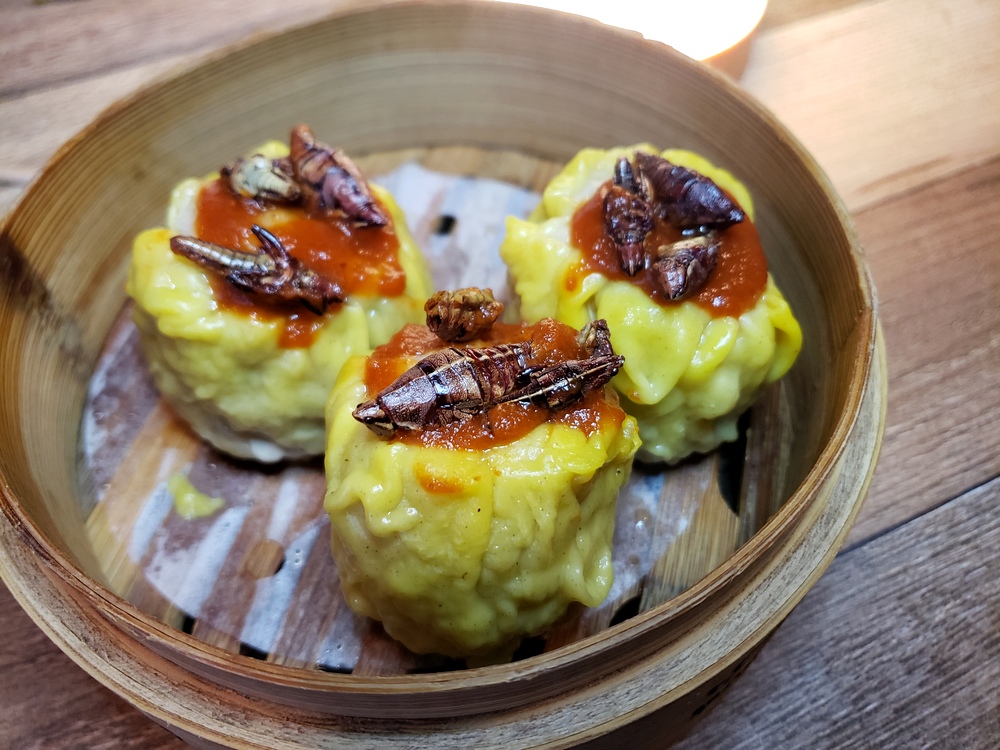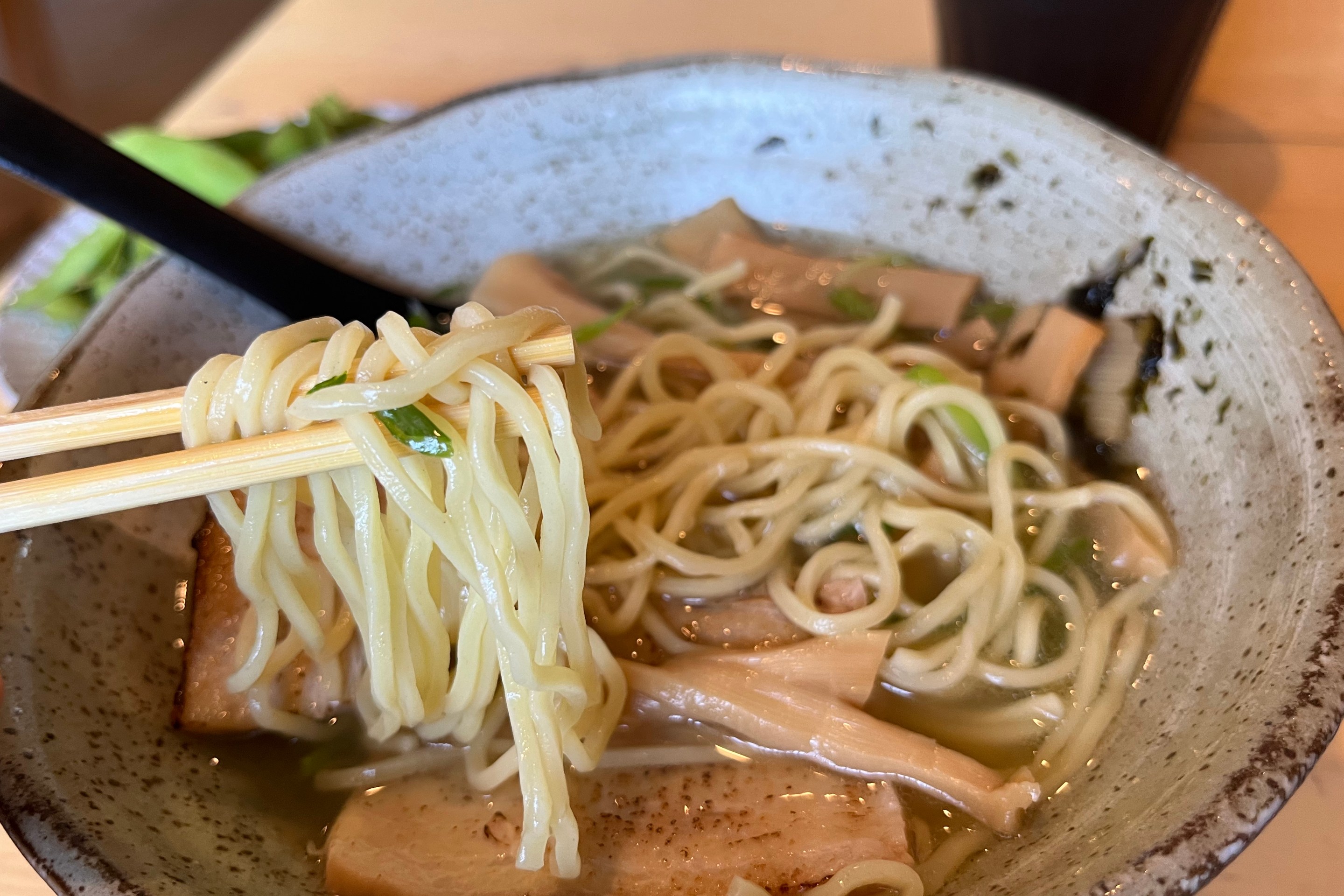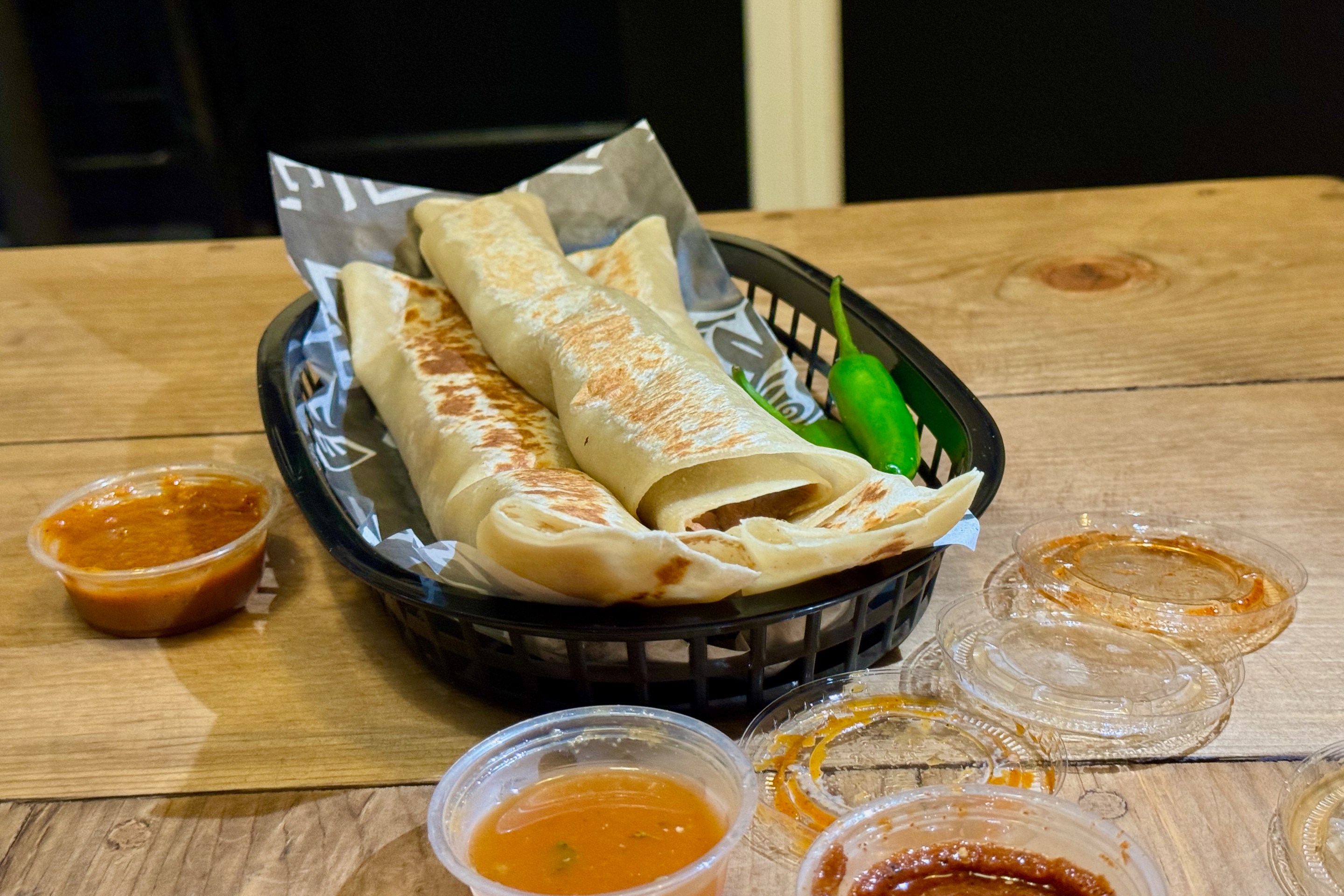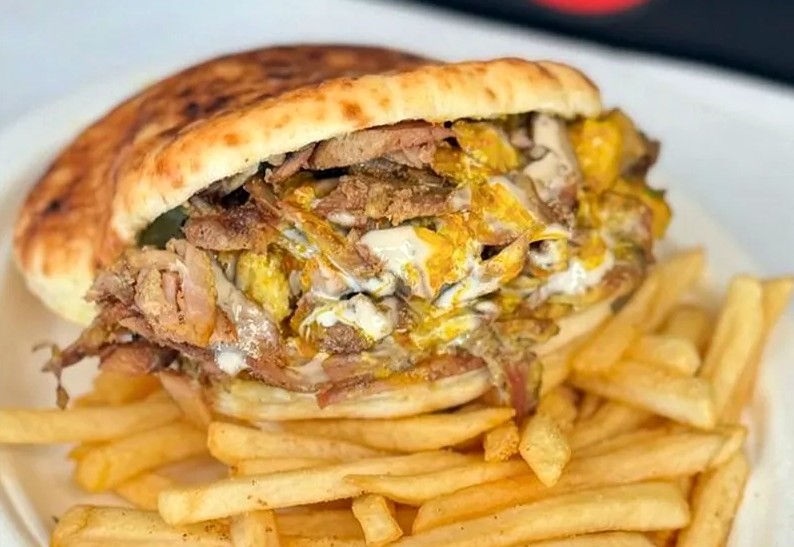There was a recent era in which both corporations and indie kitchens alike opted to express their affinity for Mexican food and culture in the form of a taco. Slip some boiled cabbage, salted pork, and mashed potatoes between the wings of a corn tortilla, and suddenly, you were no longer just an Irish food truck, but an Irish food truck tuned to the psychic wavelength of the L.A. appetite that “gets it.”
In the past year, we’ve watched chapulines—the salt-and-citrus-seasoned, comal-toasted grasshoppers most famously consumed as snacks and ingredients in Oaxaca and other parts of Mexico—spring into the local food scene as the latest in savvy nods to the city’s majority.
Chapulines are taking over as the munchie of choice in Major League ballparks and science museum gift shops across the Southwest. They’re seen chopped and speckled over French croissants in the Arts District and blended into haute cream sauces in posh Orange County beach towns.
Now, we find the crispy little critters used in a dish we can only imagine making sense to the diners of Los Angeles: chapulín-topped Chinese dumplings.
Iron Teapot Dim Sum & Bar, a 17-month-old corner of Cantonese dining in Culver City, is where you’ll encounter this synthesis of three separate cultures that fit Chinese, Vietnamese, and Oaxacan flavors into a single pork-and-shrimp shumai.
So… what the hell is going on exactly?
Iron Teapot owner Sally Chan tells L.A. TACO the exclusive dish is a singular expression of her multicultural upbringing in L.A.
Chan’s parents, who have Cantonese and Teo Chew heritage, left China for Vietnam, where she was later born. When she was one year old, the family left Vietnam behind for Rosemead and the San Gabriel Valley, where her strongest childhood memories formed over weekend dim sum, Cantonese and Hong Kong pop culture, and the ten years her family spent selling clothes in flea markets.
“The flea markets were predominantly Latino,” she says. “Menudo was our favorite food. My best friends were Mexican. I’ve never had a birthday without a pinata. I’m pretty sure my Dad thinks he’s Mexican. He has a big mustache and looked like the Nightstalker back then. He spoke Spanish first and still speaks better Spanish than English.”
An attorney with her own law firm, Chan opened Iron Teapot hoping to “introduce dim sum to people outside of China and outside of men that date Chinese women.”
After finding it “impossible” to get a classic dim sum chef from the SGV to partner and open with her on the Westside—having practically “begged” “friends and family” from NBC Seafood and 888 Seafood to do it—she eventually opened an eastside kitchen for one willing chef to handmake the dim sum there. A primarily Mexican staff prepares and puts the dishes together in her Culver City kitchen, with the pre-made dim sum being delivered there three times a week.
It was a visit to Cha Cha Cha downtown that turned her into a big fan of chapulines, sparking the idea of adding salt-and-lemon roasted grasshoppers to her shumai, a remix of sorts to the Japanese-influenced, yuzu-kosho-topped shumai she’d already introduced at the place, which has similar acidity and crunch.
“I have a lot of Oaxacan staff in the back,” she says. “I thought it would be cool to put chapulines on my shumai as a nod to my team. And they were really happy with it. I just had to warn them to stop eating all of them because we’d run out.”
We ordered these shumai earlier this week, prompting the server to ask if the three very Slavic-looking people at our table are of Oaxacan ancestry.
“Some of our co-workers in the kitchen are and love [chapulines], so I was curious,” he declared.
Three dumplings arrived on the plate, in recognizable form from the top down. Each dumpling came crowned with a tiny red pool of sriracha. Chan uses Huy Fong, the best-known Southeast Asian chile sauce brand made by David Tran, himself a Chinese immigrant from Vietnam with roots in Rosemead. Three chapulines were atop each dumpling, doing the backstroke, most with their spindly legs—the part that usually winds up between the diners’ teeth—no longer attached to their crunchy little bodies.
And what does the addition of chapulines contribute to a trio of pork-and-shrimp shumai, other than an additional $5.50? The dumplings were exceptionally plump and juicy, with the airy, earthy dried grasshoppers adding a light crunch to the tender shumai, with pronounced salinity and a nicely tart hit of citrus to each bite. It may not be the way we always want shumai going forward, but it was a flavor that grew on us as we persisted.
“You’ve got the people who order out of curiosity, like ‘grasshoppers… gross!’” Chan says, in regards to which customers tend to order the dish. “The whole Fear Factor thing, along with our tripe and chicken feet. Then there are those who order it because they love it, which tend to be Oaxacans.”
The chapulín shumai fit right into Iron Teapot’s unconventional approach to serving dim sum. The restaurant is open for dinner and backed by a full bar. You can order jet-black har gow, chicken curry crystal dumplings, rainbow XLB, vegan versions of sticky rice, shrimp, soup dumplings, and adorable, pig-faced bao for dessert, served by one of those cat-headed robots we’re seeing more of around the city.
“In Chinese, dim sum means 'from the heart,' Chan says. “Our dim sum represents the heart of who I am, which is Chinese. The sriracha, and many of the drinks at the restaurant, have Vietnamese ingredients because I also have a lot of Vietnamese background. My family was Chinese that fled China to Vietnam. And then I thought the chapulines were a very cool nod to Mexico, which has played an important part in my upbringing.”
Iron Teapot Dim Sum ~ 10306 Venice Blvd. Los Angeles, CA 90034. Closest Metro line and stop: Bus Line 33 - "Venice/Motor."





